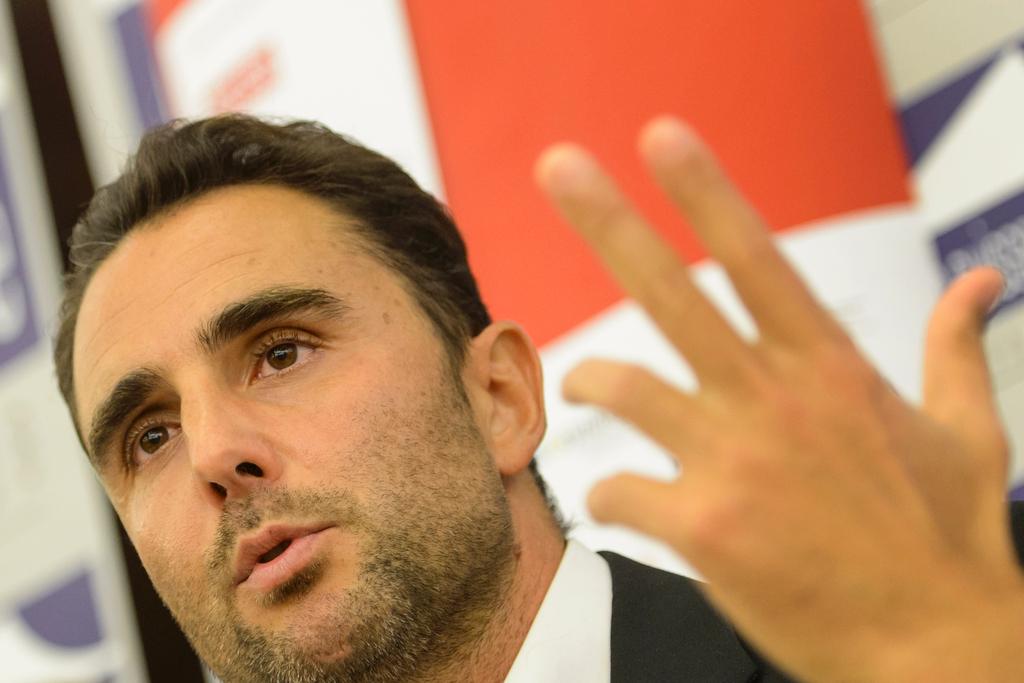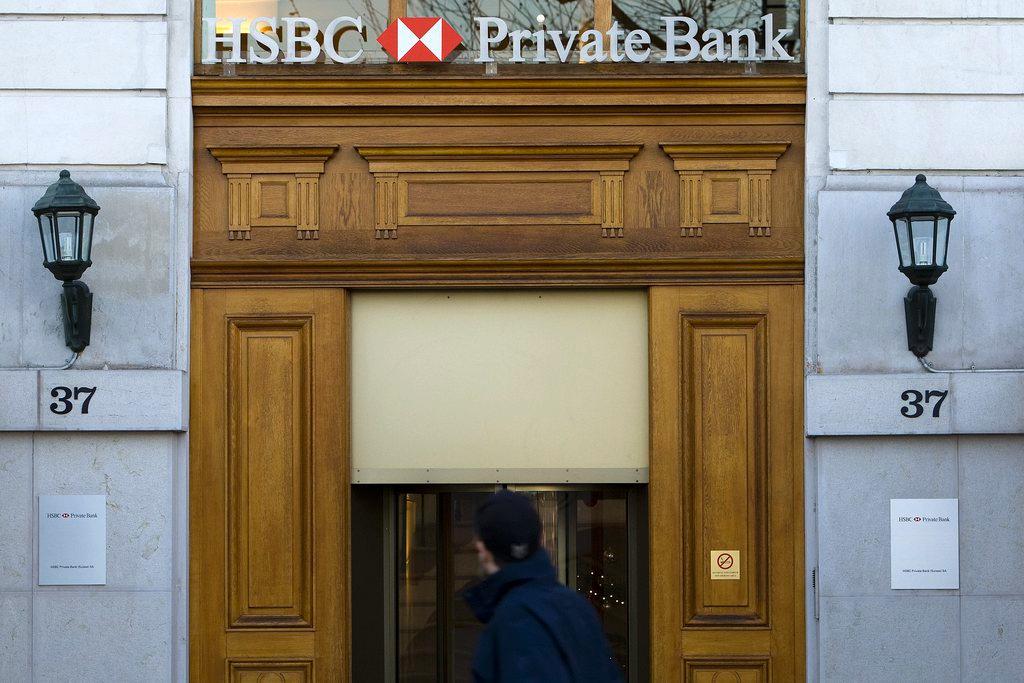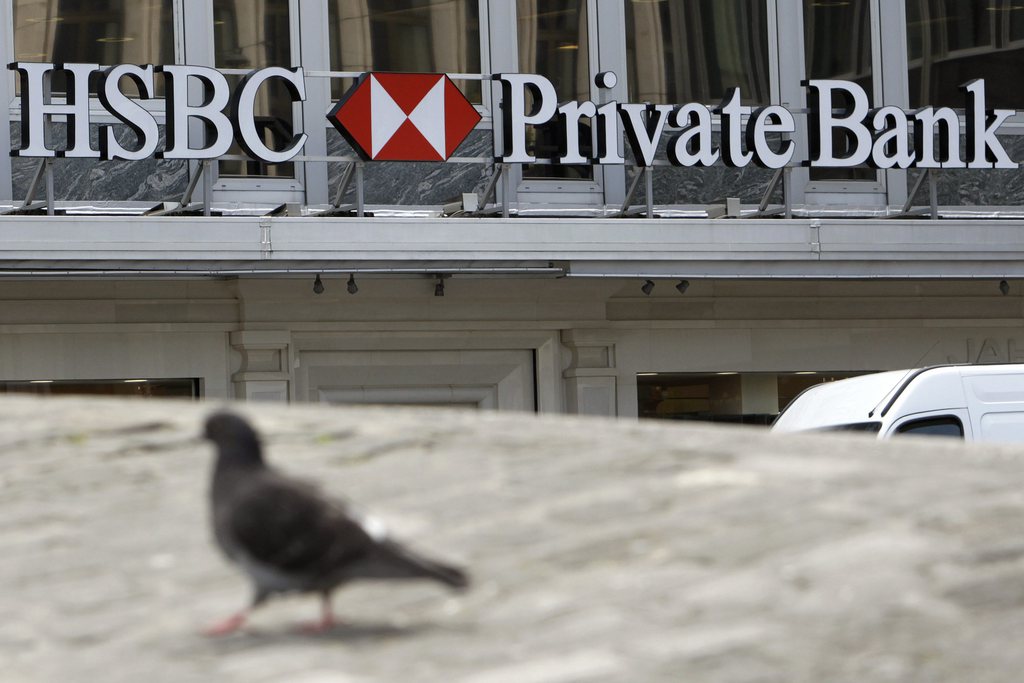Falciani confirms no-show at ‘political’ Swiss trial

The conditions for a fair trial in Switzerland have not been met, according to HSBC whistle-blower Hervé Falciani. He says he is ready to defend his actions before the European Court of Human Rights but not at a ‘political trial’ designed to ‘save face’.
“This trial was called for by a bank [HSBC], which put the money on the table so as not to be tried,” Falciani told reporters at a press conference in Divonne, France, north of Geneva, on Wednesday.
Viewed by the Swiss authorities as a data thief who betrayed his employer, Falciani failed to appear at his Swiss trial in Bellinzona on October 12, forcing it to be rescheduled for November 2.
The ex-IT employee, who is based in France, is accused in Switzerland of unauthorised acquisition of data, financial espionage and violating Swiss bank and business secrecy rules. If found guilty, he will face a prison sentence. It is unclear whether Falciani will be tried in absentia next month, as legal experts have suggested.
“In Switzerland the conditions for a fair and equal trial have not been met in my opinion,” Falciani told reporters gathered at the Divonne Casino, 20km north of Geneva.
The former employee of HSBC’s Swiss private bank, who leaked information on clients and their tax situation, added: “It’s a political trial. Look at how it started and you will understand why I am not attending. Obviously, I violated Swiss banking secrecy and what I did is reprehensible in terms of the bank’s interests. The facts are there. But to give me the label guilty or not guilty, that’s what I call appearances.”
He said the aim of the trial was to “save face, respectability and previous financial actions”.
“It’s my duty to contest this. The opportunity I have seized is to not attend, as doing so would legitimise the process,” said the 43-year-old.
Global impact
HSBC’s Swiss unit has been in the spotlight since 2008, when Falciani, a former IT employee at HSBC, fled Geneva to France with files that were leaked to the media and are alleged to show evidence of tax evasion by clients from various countries. The French daily Le Monde has said it identified more than 106,000 clients.
After passing through the hands of the French tax authorities the data was passed on to the authorities in Spain, Belgium, Britain, India, the United States, Canada, Australia, Ireland, Greece and Argentina. Since then, thousands of investigations have been opened against suspected tax cheats around the world.
In Switzerland Geneva’s public prosecutor searched HSBC’s lakeside office in February after opening a criminal inquiry into allegations of aggravated money laundering. In June, HSBC agreed to pay Geneva authorities CHF40 million to settle the investigation.
HSBC has also apologised to customers and investors over the previous failings of its Swiss business and said it has overhauled the operation.
Falciani: I continue to work as a consultant for different tax admins and train university investigators. pic.twitter.com/Pg2poXLWNzExternal link
— Simon Bradley (@sibradley1) October 28, 2015External linkOngoing ‘projects’
Falciani told reporters that he had been working as a paid consultant for various foreign tax administrations, investigators and local authorities over the past five years. New revelations were expected in India and Brazil, he hinted.
“I am also setting up a university course for tax investigators to present ways of improving the system,” he added. “Beyond all these scandals, there is an interest to look at how we can take advantage of what has happened and to offer solutions.”
He urged citizens to get involved to help improve the financial system, in particular in the “big financial battle” right now – the payment systems of the future.
“For years, state sovereignty was expressed via national currency but this is no longer possible. When HSBC and Apple sign an agreement so mobile phones become the payment interfaces of tomorrow, it’s a risk for our sovereignty. We have to imagine an open source system in the future protected by the state,” he commented.
To be, or not to be…a whistle-blower?
Questioned about his backers, Falciani admitted he had support from “several foundations” but denied he was at the head of a movement. He also refused to get into a debate about whether or not he is a whistle-blower, a label he is frequently given in the press.
“I’m not interested in who I am, but what I do. The question is not whether what I did was for money or if there were other motivations. I’m not a label. For a long time the debate was focused on me. But it’s for a cause. It’s a struggle and it’s in all of our interests.”
In recent years, the 43-year-old has lived under police protection in France, and as a holder of joint Italian and French citizenship he has not been extradited to Switzerland. He was taken into custody in Spain in 2012 but in May 2013 a Spanish court ruled that he would not be extradited to the alpine nation.
He said: “I prefer to go through 190 extradition trials in 190 different countries to see whether they back the Swiss position. Spain has confirmed loudly that it doesn’t support it. The Swiss position is just a position. And I contest it, even if what happens may be another blow. By keeping a low profile I could avoid prison. But I haven’t chosen the easy path. It’s about being coherent.”

In compliance with the JTI standards
More: SWI swissinfo.ch certified by the Journalism Trust Initiative













You can find an overview of ongoing debates with our journalists here . Please join us!
If you want to start a conversation about a topic raised in this article or want to report factual errors, email us at english@swissinfo.ch.